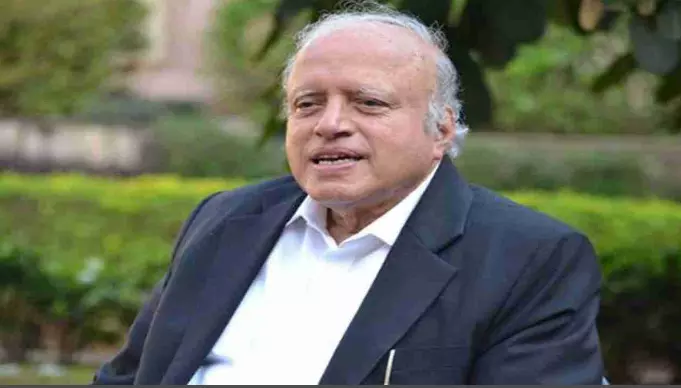
MS Swaminathan, father of India’s Green Revolution, dies at 98
A winner of several national and international prizes, Swaminathan was a renowned agronomist who is hailed as the father of India's Green Revolution.

Globally-recognized eminent Indian agricultural scientist MS Swaminathan, hailed as the father of the Green Revolution, passed away in Chennai on Thursday (September 28). He was 98.
A winner of several national and international prizes for his work in agriculture, Swaminathan was recognized by TIME magazine as one of the 20 most influential Asians of the 20th century.
He was one of only three from India in the category, the other two being Mahatma Gandhi and Rabindranath Tagore.
PM pays tribute
Prime Minister Narendra Modi on Thursday expressed grief at the death of eminent scientist MS Swaminathan and said his groundbreaking work in agriculture transformed lives of millions and ensured India's food security.
"Deeply saddened by the demise of Dr MS Swaminathan Ji. At a very critical period in our nation’s history, his groundbreaking work in agriculture transformed the lives of millions and ensured food security for our nation," Modi said in a post on X (formerly Twitter).
The prime minister further said, “Beyond his revolutionary contributions to agriculture, Dr. Swaminathan was a powerhouse of innovation and a nurturing mentor to many. His unwavering commitment to research and mentorship has left an indelible mark on countless scientists and innovators.” Modi said he would always cherish his conversations with Swaminathan and added that his passion to see India progress was exemplary.
"His life and work will inspire generations to come. Condolences to his family and admirers. Om Shanti," Modi wrote.
An era of agricultural research, education and extension marked by disruptive innovations has come to an end with the death of MS Swaminathan, Indian Agricultural Research Institute (IARI) Director A K Singh said.
"In passing away of Prof. Swaminathan, ends an era of agricultural research, education and extension that was full of disruptive innovation. If God appears to poor and hungry in form of bread as said by Mahatma Gandhi, that God is Dr. Swaminathan who should be worshipped by every citizen while taking daily meals," Singh said in a statement.
Swaminathan was a renowned agronomist and plant geneticist credited with introducing high-yielding varieties of wheat and rice in India and further developing these strains.
His work with American scientist Norman Borlaug is widely seen as having saved India from famine in the 1960s.
Widely honoured
Swaminathan won the first World Food Prize, the highest honour in the field of agriculture, in 1987.
He has also received the Ramon Magsaysay Award (1971) and the Albert Einstein World Award for Science (1986).
He has also been conferred with the Padma Shri, Padma Bhushan and the Padma Vibhushan.
Born on August 7, 1925 in Tamil Nadu’s Thanjavur district, he began his career in 1949 researching on the genetics of potato, wheat, rice and jute.
Swaminathan played a key role in developing high-yielding varieties of paddy that helped ensure India’s low-income farmers produce more yield.
It was after World Food Prize that he set up the MS Swaminathan Research Foundation in Chennai.
In 1988, Swaminathan became the president of the International Union of the Conservation of Nature and Natural resources. In 2004, he was appointed as chair of the National Commission on Farmers.
He is survived by daughters Soumya Swaminathan, Madhura Swaminathan and Nitya Swaminathan. His wife, Mina Swaminathan, an educationist, died in March last year.
(With agency inputs)

